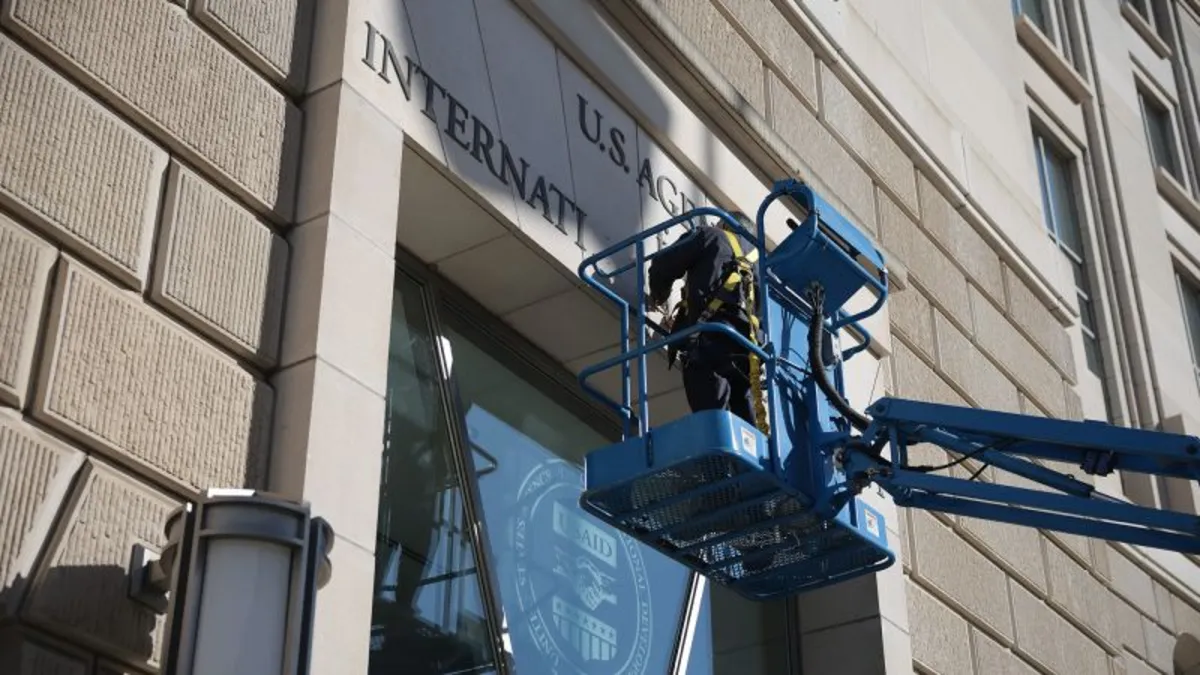
On Friday, the State Department officially notified Congress about its decision to dissolve the US Agency for International Development (USAID). This significant reorganization will see many of USAID's essential functions integrated into the State Department by July 1. This announcement marks a pivotal moment for USAID, a multibillion-dollar agency renowned for its efforts to fight poverty and hunger globally, effectively sounding the death knell for an organization established by Congress.
The abrupt closure of USAID, a major agency that has operated without the legislative branch's input, is anticipated to face legal challenges. Critics, including the Trump administration, have claimed that USAID has mismanaged taxpayer dollars and funded overseas programs that do not align with US interests. However, current and former USAID employees, along with aid experts, argue that the agency plays a critical role in addressing humanitarian needs and strengthening America's soft power on the global stage.
During its early weeks in office, the Trump administration took steps to dismantle USAID and put a freeze on nearly all foreign assistance, pending a comprehensive review of these programs. As a result, thousands of USAID employees have been terminated or placed on leave, and billions of dollars in aid contracts have been canceled. As of last week, fewer than 900 USAID employees remained active, according to a recent notification from the agency to Congress.
The significant reduction of USAID has led to lawsuits from aid organizations and former employees, some of whom have recounted difficult journeys home from overseas missions without reimbursement. On the same day of the State Department's announcement, a federal appeals court temporarily approved the Trump administration's actions to dismantle the agency. The unanimous decision from the three judges on the 4th US Circuit Court of Appeals indicates that while the courts might ultimately reverse this decision, they will not intervene at this current time.
USAID has also become a target of Elon Musk’s newly formed Department of Government Efficiency (DOGE), which is initiating cuts to thousands of jobs and programs across the federal government. In a communication to remaining USAID employees, Jeremy Lewin, a DOGE liaison and senior official at USAID, emphasized that this restructuring aims to “significantly enhance efficiency, accountability, uniformity, and strategic impact” in delivering foreign assistance programs. He stated that this would allow the nation and the President to present a unified voice in foreign affairs.
Lewin noted that “substantially all non-statutory positions at USAID will be eliminated” as a part of this reorganization. Employees will start receiving “reduction-in-force” notices effective Friday. In the upcoming three months, the State Department and USAID will collaborate to ensure a smooth transition of USAID’s remaining life-saving and strategic aid programs. The programs that will continue under the State Department include critical areas such as “humanitarian assistance, global health functions, strategic investment, and limited national security programs,” as outlined in the notification to Congress.
Furthermore, the development initiatives previously managed by USAID's regional bureaus worldwide are slated to be absorbed into the corresponding regional bureaus of the State Department. The notification indicated that many functions might be redundant with existing capabilities within the Department, and these will be eliminated as part of the restructuring plan. Notably, there has been considerable resistance from senior career officials against the closure of USAID, highlighting the contentious nature of this significant governmental shift.